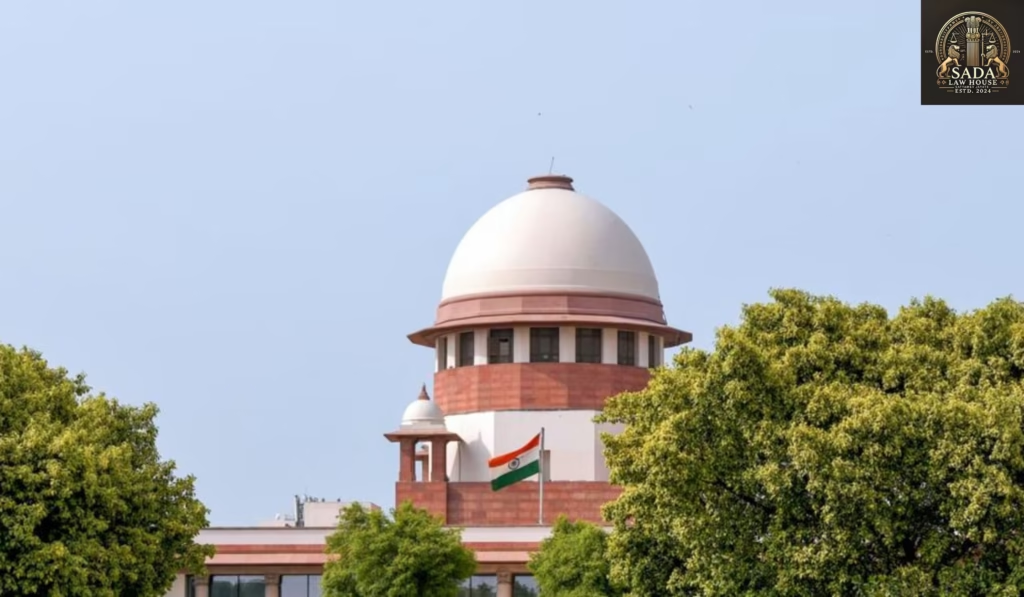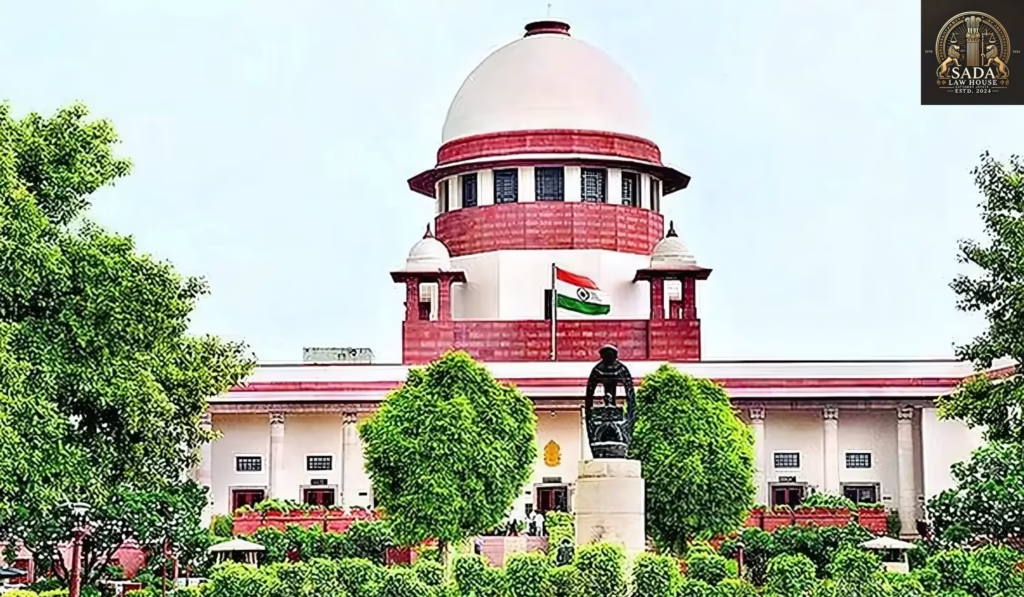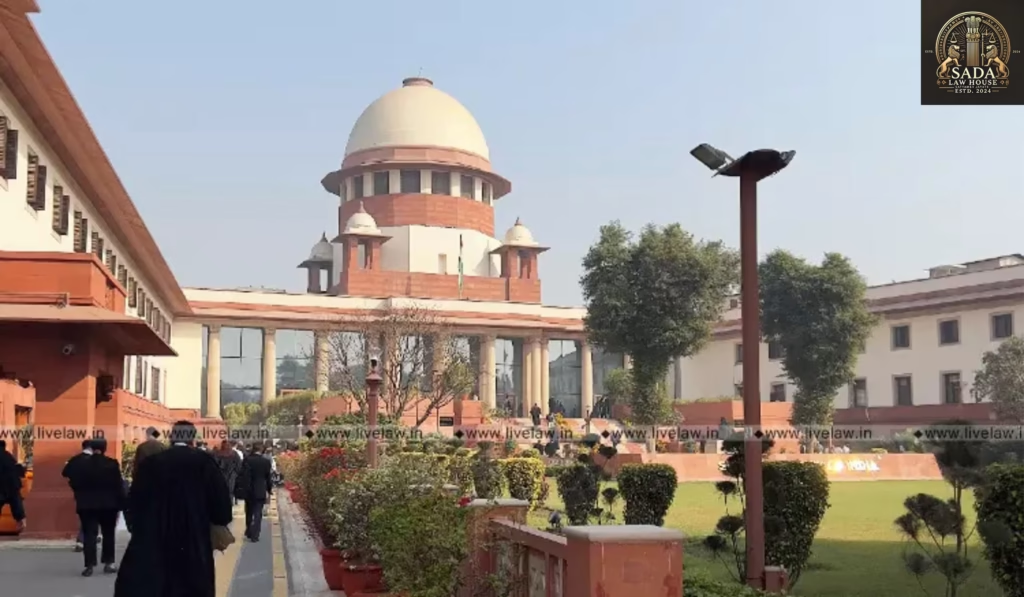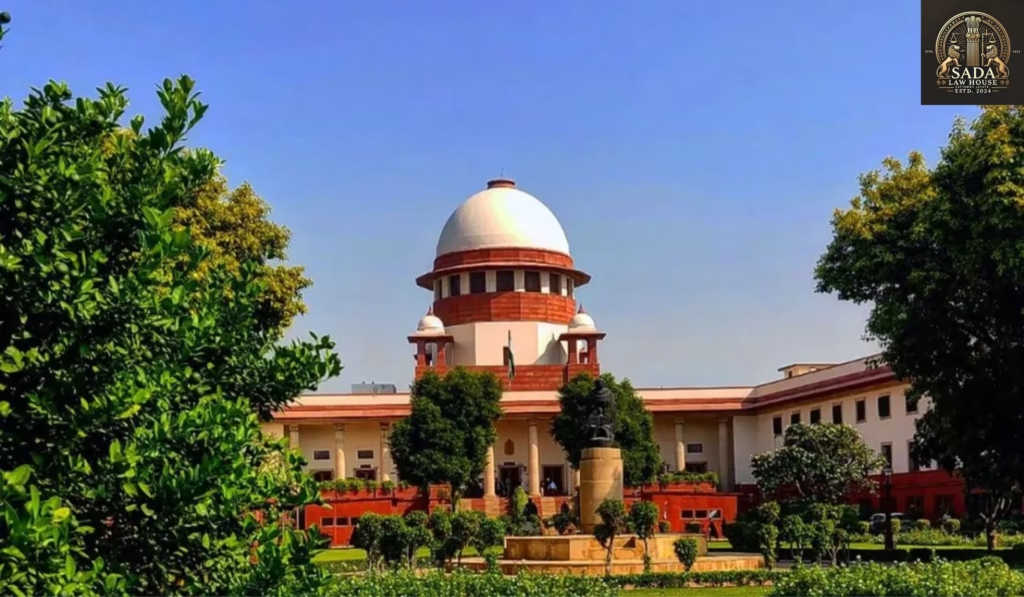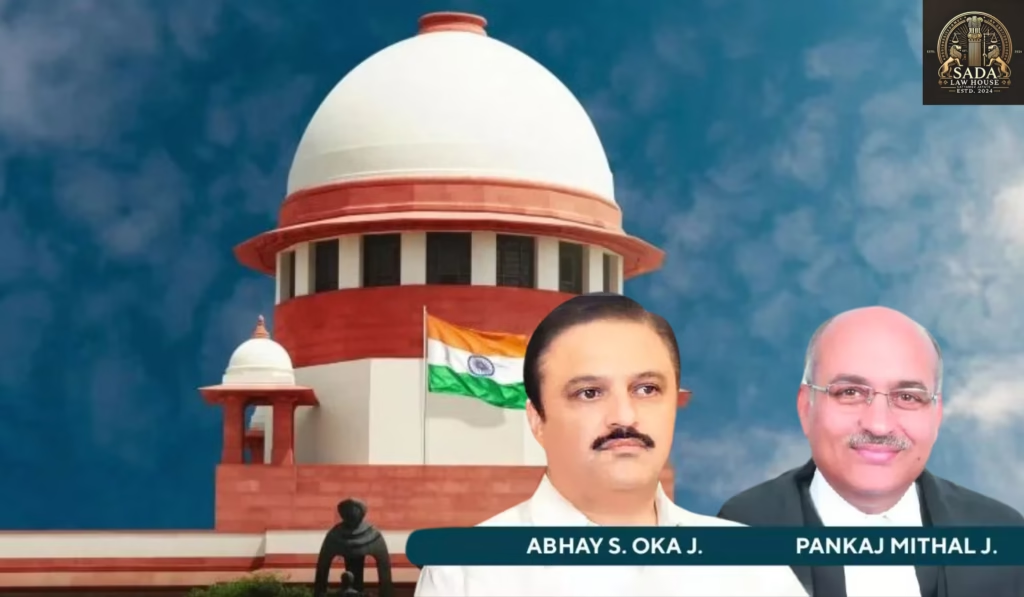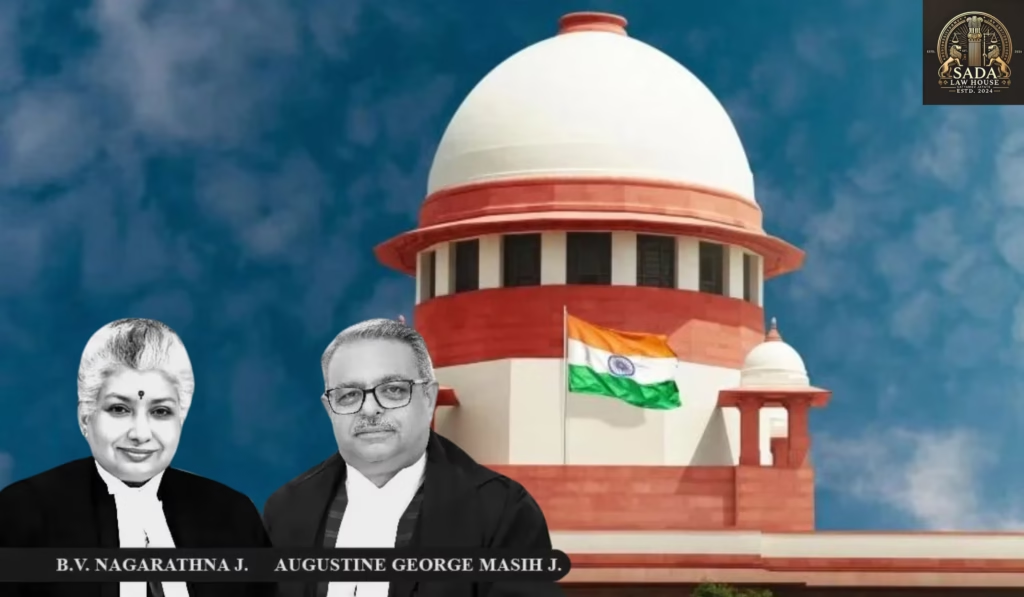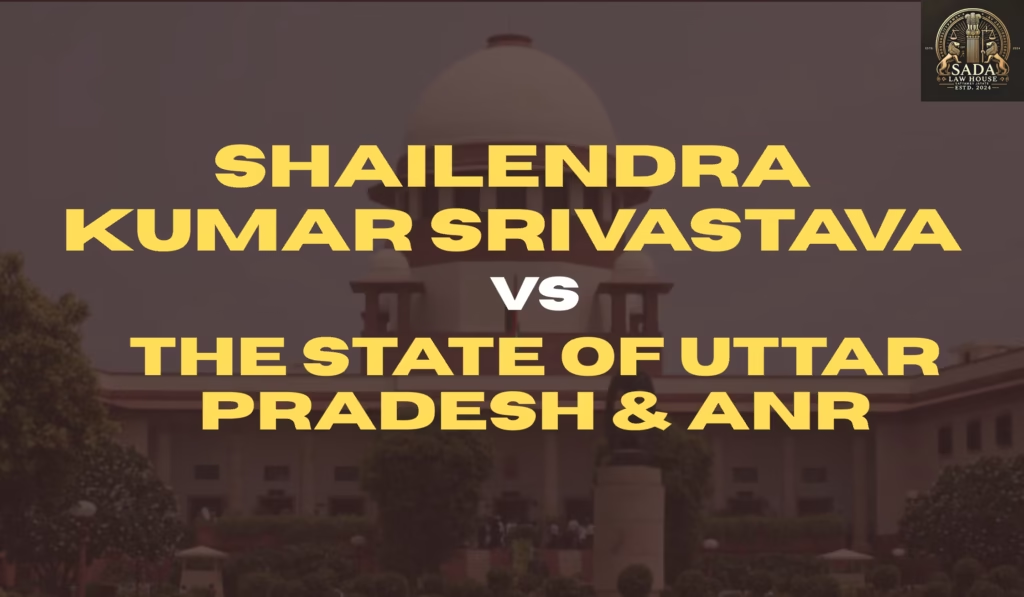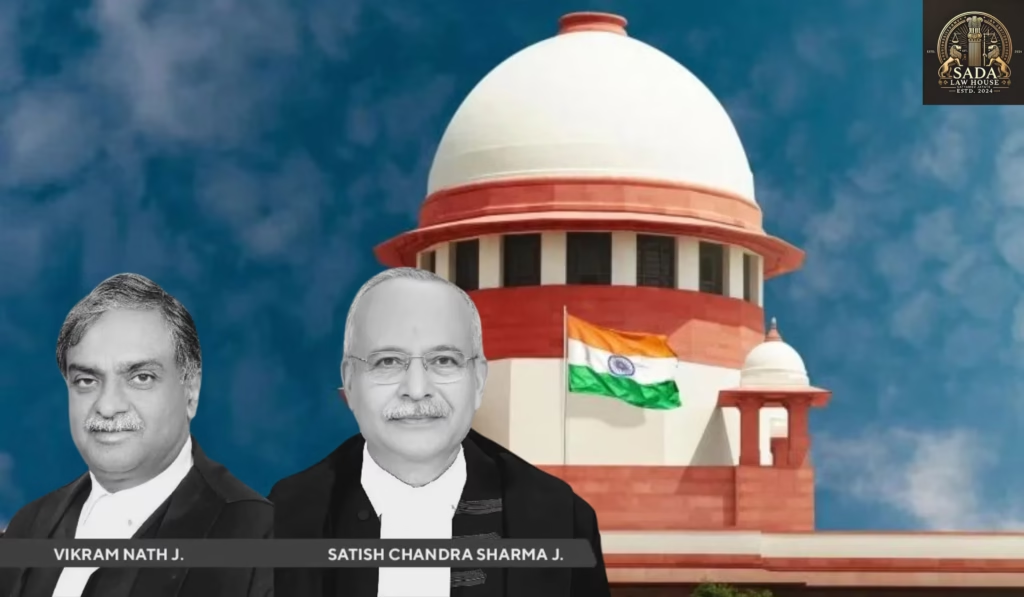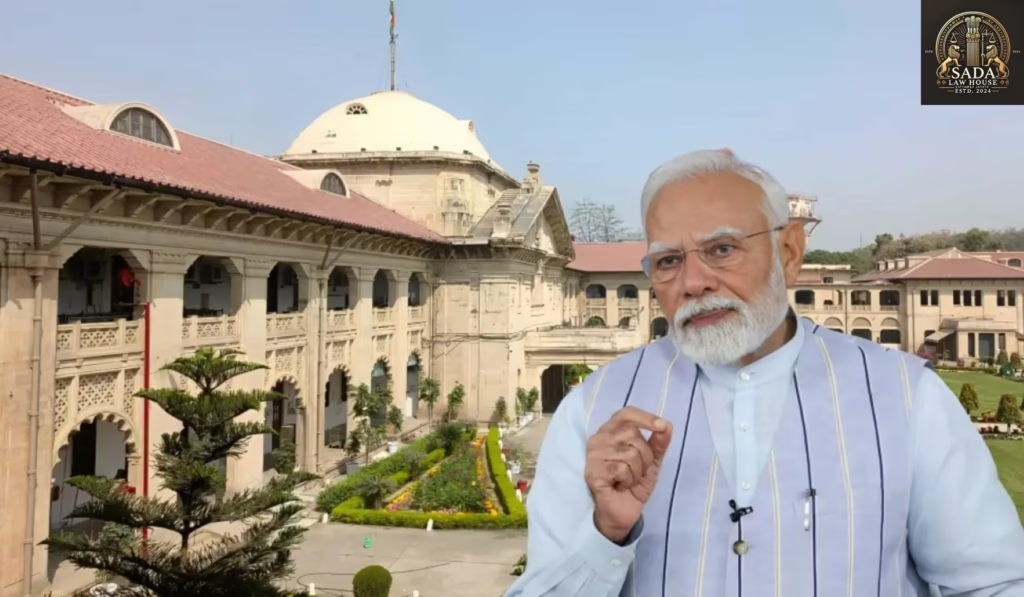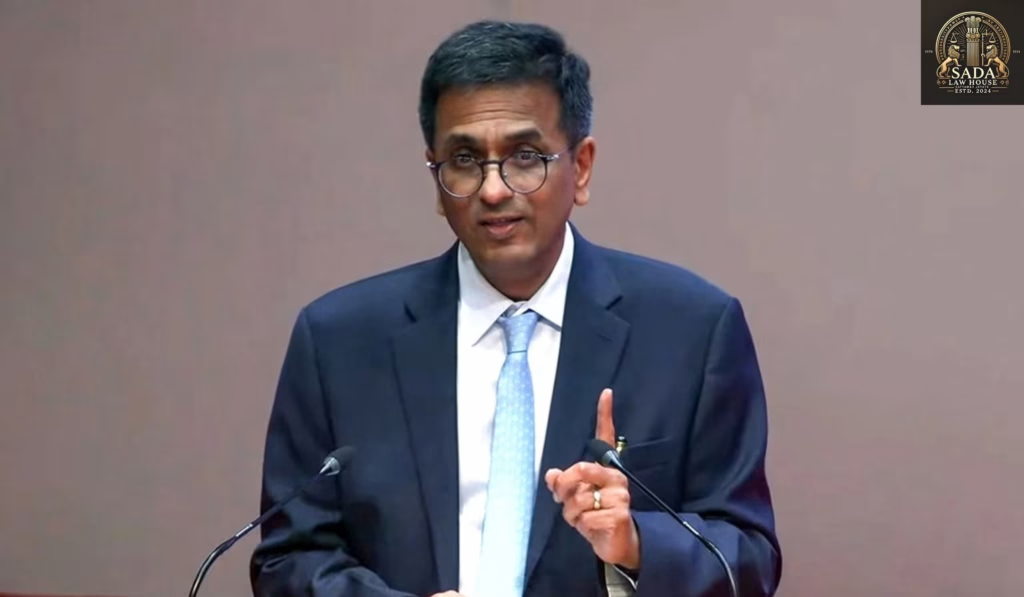Supreme Court Rules High Courts Cannot Suo Motu Enhance Convict’s Sentence in Appeal
Trending Today Supreme Court Rules High Courts Cannot Suo Motu Enhance Convict’s Sentence in Appeal Supreme Court Warns Against Misuse of Section 498A IPC in Matrimonial Disputes Supreme Court Slams Senior Advocates for Abandoning Clients Post Designation Supreme Court Calls for Speedy Resolution of Landlord-Tenant Disputes to Unclog Judiciary Supreme Court Judgment on Arbitration Appeals: Limits on Remand and Emphasis on Efficiency in Bombay Slum Redevelopment Case (2024) Supreme Court Affirms Divorced Muslim Women Can Claim Maintenance Under Section 125 CrPC Despite 1986 Act Supreme Court: No Withdrawal of Murder Prosecution Solely Due to Accused’s Political Status Supreme Court Judgment on CIC’s Power to Form Benches & Frame Regulations Under RTI Act – Central Information Commission v. DDA, 2024 Allahabad High Court Rejects Relief for Man Over ‘Coward-PM Modi’ Social Media Posts Amid India-Pakistan Ceasefire DY Chandrachud Appointed as Key Authority in Russia-Wintershall Energy Arbitration under Energy Charter Supreme Court Rules High Courts Cannot Suo Motu Enhance Convict’s Sentence in Appeal KASHISH JAHAN 09 June 2025 The Supreme Court of India ruled that High Courts cannot suo motu enhance a convict’s sentence during appeal, reinforcing fundamental rights and the principles of natural justice. Learn why this landmark decision matters for the Indian justice system. Supreme Court Bans Suo Motu Sentence Enhancement by High Courts In a powerful ruling that strengthens the rights of the accused, the Supreme Court of India has declared that High Courts cannot suo motu (on their own) enhance the sentence of a convict while deciding an appeal. This judgment, passed in the first week of June 2025, emphasizes that justice should not penalize individuals for seeking an appeal. Appeal Is a Right, Not a Gamble The ruling stems from a case where a convict appealed a verdict by a trial court, seeking either acquittal or a lighter sentence. Surprisingly, the High Court not only upheld the conviction but also increased the sentence — without any request or separate appeal from the prosecution. The apex court firmly opposed this, stating that it undermines the essence of an appeal. As the Court poignantly put it: “An appeal should not become a punishment for seeking justice.” Violation of Natural Justice and Constitutional Rights The Court found such judicial conduct alarming and unconstitutional. It violates the principles of natural justice and breaches Article 21 of the Indian Constitution, which guarantees the right to life and personal liberty. When a convict is punished more severely just for appealing, it discourages the use of a legal remedy designed to promote justice. This creates a dangerous chilling effect on the right to fair appellate proceedings. Due Process Must Be Followed The Supreme Court made it clear: if a sentence enhancement is to be considered, the prosecution must file a proper appeal or revision petition. The accused must be given prior notice and a fair chance to respond before any harsher sentence is imposed. This ensures procedural fairness — a cornerstone of any just legal system. Constitutional Safeguards for Accused Individuals This ruling aligns with the broader body of constitutional jurisprudence that protects the rights of accused persons. The Court stressed that appellate jurisdiction has clear boundaries, and exceeding them amounts to judicial overreach. Such actions risk eroding public trust in the judiciary and discouraging even genuine appeals. Why This Verdict Matters This landmark verdict reminds High Courts across India to respect their appellate limitations and uphold the rule of law. Appeals should remain a beacon of hope and justice — not a risk of facing harsher punishment. By reinforcing the principle that appeals are a legal right and not a legal gamble, the Supreme Court has taken a vital step toward restoring public confidence in the Indian criminal justice system. Leave a Reply Cancel Reply Logged in as Sada Law. Edit your profile. Log out? Required fields are marked * Message* Live Cases Supreme Court Rules High Courts Cannot Suo Motu Enhance Convict’s Sentence in Appeal Supreme Court Rules High Courts Cannot Suo Motu Enhance Convict’s Sentence in Appeal Sada Law • June 9, 2025 • Live cases • No Comments Supreme Court Warns Against Misuse of Section 498A IPC in Matrimonial Disputes Supreme Court Warns Against Misuse of Section 498A IPC in Matrimonial Disputes Sada Law • June 9, 2025 • Live cases • No Comments Supreme Court Slams Senior Advocates for Abandoning Clients Post Designation Supreme Court Slams Senior Advocates for Abandoning Clients Post Designation Sada Law • June 9, 2025 • Live cases • No Comments 1 2 3 … 5 Next »
Supreme Court Rules High Courts Cannot Suo Motu Enhance Convict’s Sentence in Appeal Read More »

